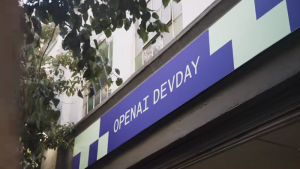Facebook: How To Raise Money Without Raising Oversight
There are some similarities between Google’s IPO (Initial Public Offering) and Facebook’s attempts at an Initial Private Offering with its recent Goldman deal.
The similarity is that Google didn’t want too much oversight or influence on its management by outsiders, and clearly, Facebook wants the same deal.![]()
When Google filed for its IPO in 2004 it raised $1.67 billion, not far off the $1.5 billion Facebook could raise through the Goldman deal.
From the beginning it was clear that Google wanted the money but it didn’t want the oversight that comes with being a public company and the influence on management.
Larry Page and Sergey Brin explained in their “Founders’ IPO Letter” that they intend to manage the company based on long term investment opportunities and not on managing to meet quarterly market expectations. They said that they got this idea from Warren Buffett. “We would request that our shareholders take the long term view.”
But they didn’t want to take a chance on their investors agreeing with this philosophy. They made sure that investors had no choice and no chance at influencing the company’s plans. The IPO provided Google Founders shares with ten times the voting rights of common shares.
In a similar way, Facebook with its Goldman deal, is able to raise capital from investors and avoid any oversight or influence on management.
However, John Battelle writing at Searchblog says Facebook needs to become accountable to the public.
Facebook is the greatest repository of data about people’s intentions, relationships, and utterances that ever has been created. Period. And a company that owns that much private data should be accountable to the public. The public should be able to review its practices, its financials, and question its intentions in a manner backed by our collective and legally codified will. That’s the point of a public company – accountability, transparency, and thorough reporting.
It’s a good point but clearly, Facebook wants to limit its accountability as much as possible, even using the Goldman deal to avoid SEC regulations that force companies with more than 500 investors to declare their financial performance.
A message from John Furrier, co-founder of SiliconANGLE:
Your vote of support is important to us and it helps us keep the content FREE.
One click below supports our mission to provide free, deep, and relevant content.
Join our community on YouTube
Join the community that includes more than 15,000 #CubeAlumni experts, including Amazon.com CEO Andy Jassy, Dell Technologies founder and CEO Michael Dell, Intel CEO Pat Gelsinger, and many more luminaries and experts.
THANK YOU













